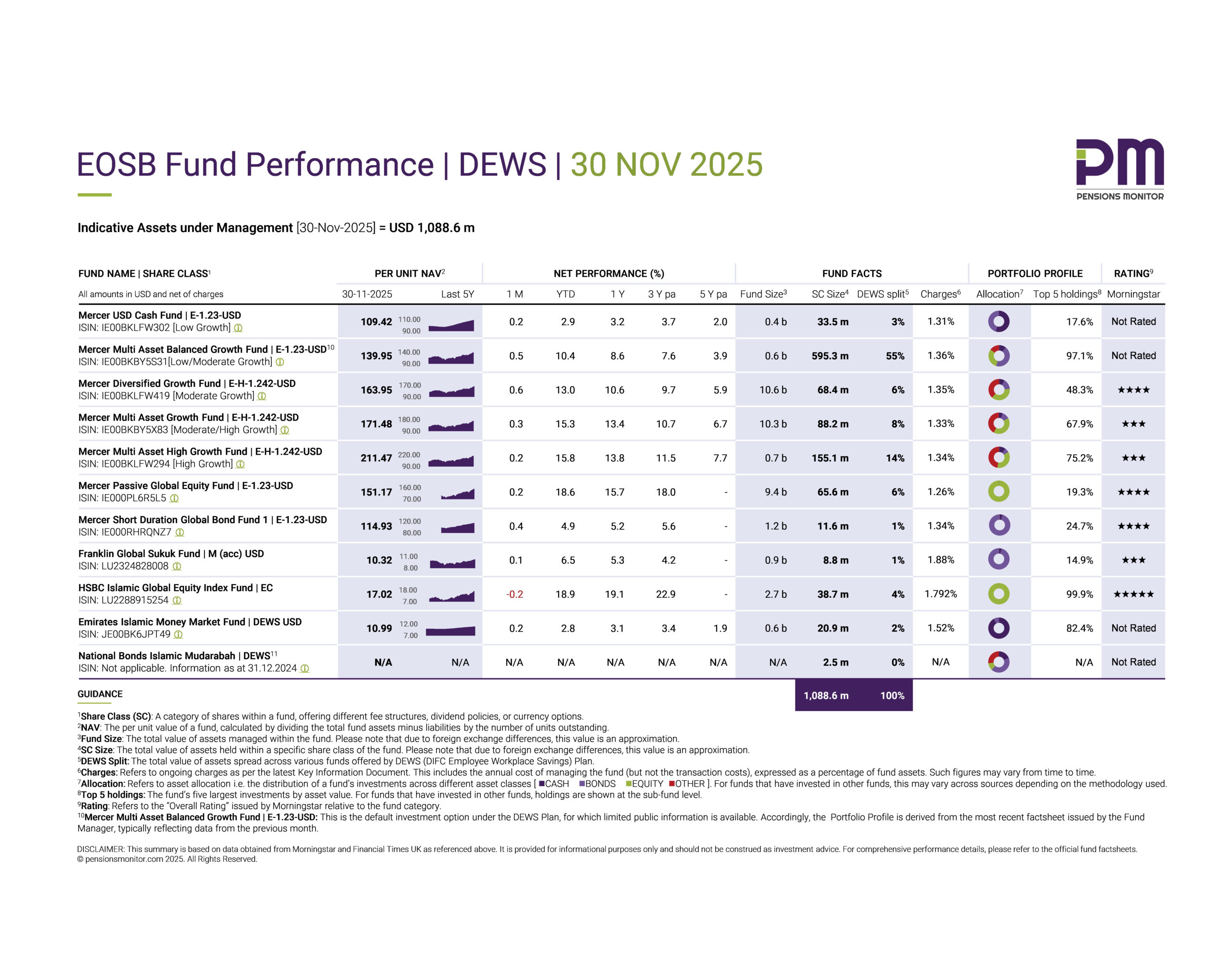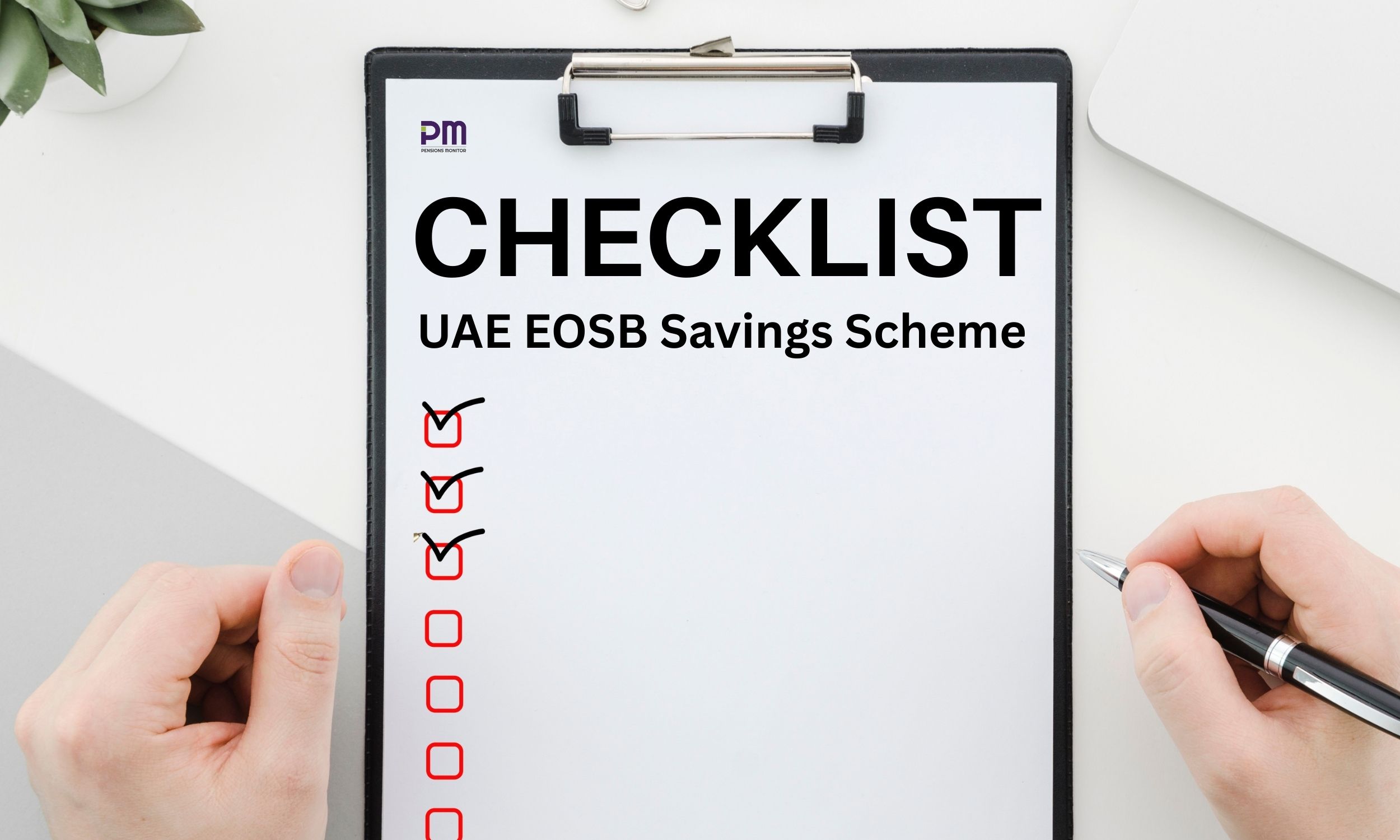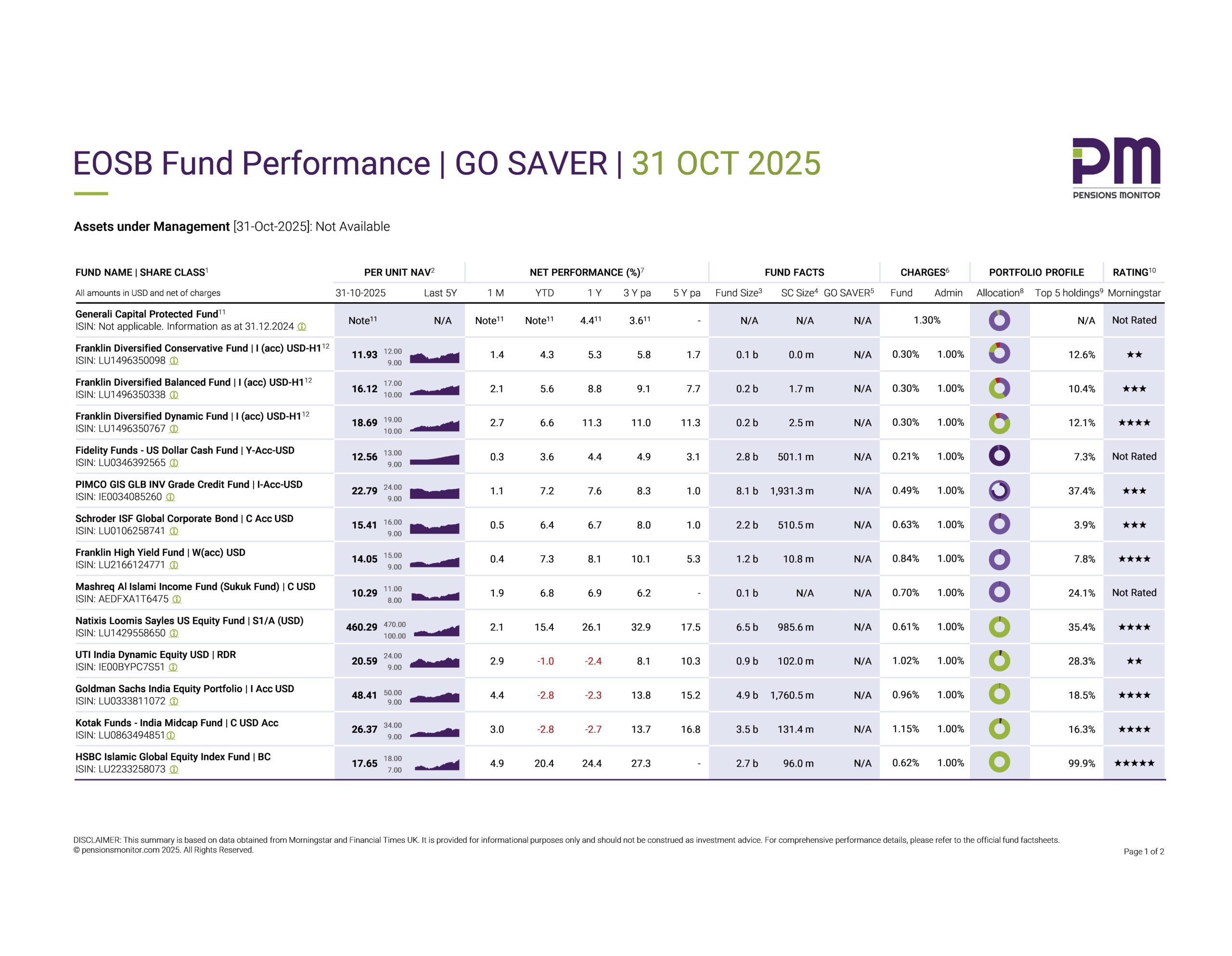
With Emiratization targets increasing year-on-year for the private sector, HR professionals and employers are considering various options for hiring UAE nationals. One question that was recently raised is whether retired UAE nationals who re-enter the private sector workforce are eligible for the End-of-Service Benefits (EOSB) Savings scheme.
While we know that UAE nationals are required to be registered with the UAE’s federal pension scheme within one month of employment, the situation for retired UAE nationals who return to work is less clear. Are such candidates eligible for EOSB upon re-entry into the private sector workforce?
In this article, Pensions Monitor provides clarity based on guidance from the relevant regulators. That said, this article is intended for informational purposes only and should not be considered or relied upon as legal advice. Companies are advised to consult their own legal advisors for guidance on the subject.
Understanding who is a retired UAE national
By definition, a retired Emirati national is one who has (a) completed the minimum number of years of service required to qualify for pension payments; and (b) reached the minimum retirement age to begin receiving pension benefits.
The specific eligibility criteria for pension payouts, including the minimum years of service and age, may vary depending on the respective pension authority, that includes Abu Dhabi Pension Fund for the Emirate of Abu Dhabi, Sharjah Social Security Fund for the Emirate of Sharjah and the General Pensions and Social Security Authority for the other emirates.
There are also provisions for early retirement in certain cases, depending on gender, service duration, and personal circumstances.
When a retired UAE national re-enters the workforce
We note that a retired UAE national is free to return to the private sector workforce at any time, and there is no maximum age that would render him/her unemployable so long as the individual is medically fit. However, when such an individual re-enters employment, there are some important considerations for employers. Are such candidates required to be registered with the respective pension authority and more importantly, will pension authority register a retired UAE national/pensioner?
-
Registration with the pension authority is mandatory for all UAE nationals employed in the private sector. Employers must attempt to register a retired UAE national with the relevant pension authority within one month of employment.
-
Registration may be permitted depending on the number of years of service completed and the age of the individual. Generally, the individual must be under 60 years old to be eligible for registration in the pension scheme.
-
-
5% of the salary contributed by the employee. For UAE employees entering the workforce for the first time on or after 31 October 2023, the employee pension contribution rate is 11%.
-
12.5 – 15.0% of the salary contributed by the employer.
-
Additionally, employers may choose to voluntarily enroll the employee in the new alternative EOSB Savings Scheme, enabling voluntary contributions by either the employer, the employee, or both.
If the retired UAE national is successfully registered with the respective pension authority, the employer is required to make pension contributions as follows:
-
-
If a retired UAE national is not eligible for registration in the national pension system for having reached the age of retirement (60) years old and having completed the maximum years of service (30) years, then the individual is eligible to receive both a pension and a salary on re-entering the private sector workforce. This allows retirees to continue earning while drawing their pension benefits.
In such a case, the individual will be treated as a regular private sector employee. As a result, he/she will be eligible for End-of-Service Benefits (EOSB). This means they will receive EOSB according to the applicable rules for private sector employees.
Furthermore, if the employer is voluntarily enrolled in the EOSB Savings scheme which is currently optional, then the retired UAE national may or may not be enrolled into the scheme as at present, there is no compulsion for employers to enroll all employees in the scheme.
However, the retired UAE national will have to be enrolled in the EOSB Savings scheme when it becomes compulsory.
Our view
When hiring a retired UAE national, employers should evaluate each situation on a case-by-case basis.
Employers may find that hiring retired UAE nationals can result in cost savings, as these individuals may not require the same level of salary or benefits as younger employees. Moreover, they may be exempt from pension contributions by the employer, if they are not eligible for registration with the pension system.
While this may indeed be a cost saving, employers should note that hiring a retired UAE national who is not accepted by the pension system, will not contribute to Emiratisation targets, as these employees are considered outside the scope of the pension scheme. Companies should be reminded that one of the conditions to meet Emiratisation is that the employee should be registered in the national pension system.
Nevertheless, retired Emiratis bring valuable experience, knowledge, and skills to the workforce. Many retired nationals are highly experienced professionals who are not likely to demand a high salary, making them attractive candidates for employers seeking expertise without the full costs associated with younger hires.
We would like to know if you found this article useful. If you have a view or comment on this article, or have questions that need answers, do email us at info@pensionsmonitor.com.





